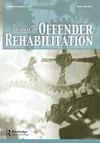开发一个可测试的社区监督逻辑模型
IF 1.1
Q3 SOCIAL WORK
引用次数: 2
摘要
摘要在美国几乎所有的社区监督机构中,实地接触是社区监督实践的核心;然而,各机构之间实地接触的性质差异很大。如果没有一个标准的定义,就不可能就实地接触对个人结果或公共安全的影响得出结论。因此,在进行研究以测试实地接触的有效性之前,至关重要的是首先深入了解实地工作的性质和目的,作为社区监督的一部分,并为未来的测试制定理论框架。本研究旨在通过探索和描述实地接触的性质和目的,建立社区监督实地工作的逻辑模型。我们使用了定性的数据收集方法,包括由社区监督官员完成的现场联系清单、与官员的焦点小组以及与机构领导人的访谈,来分析两个州的各种现场工作方法,并确定不同方法背后的推理模式。这项研究的结果可用于设计对各种结果的实地接触组成部分的严格测试,以使决策者了解不同实地工作方法的相对有效性。本文章由计算机程序翻译,如有差异,请以英文原文为准。
Development of a testable logic model for community supervision home and field contacts
Abstract Field contacts are at the core of community supervision practice in nearly all community supervision agencies in the United States; however, the nature of field contacts varies widely across agencies. Without a standard definition, it is impossible to draw conclusions about the impact of field contacts on individual outcomes or public safety. Therefore, prior to conducting research to test the effectiveness of field contacts, it is critical to first establish an in-depth understanding of the nature and purpose of field work as part of community supervision and develop a theoretical framework for future testing. This study aimed to develop a logic model for community supervision field work by exploring and describing the nature and purpose of field contacts. We used qualitative methods of data collection including a field contact checklist completed by community supervision officers, focus groups with officers, and interviews with agency leaders, to unpack the various approaches to field work in two states and to identify patterns of reasoning behind the different approaches. The findings from this study can be used to design rigorous tests of field contact components on various outcomes in order to inform policymakers about the relative effectiveness of different approaches to field work.
求助全文
通过发布文献求助,成功后即可免费获取论文全文。
去求助
来源期刊

Journal of Offender Rehabilitation
SOCIAL WORK-
CiteScore
1.60
自引率
0.00%
发文量
24
期刊介绍:
The Journal of Offender Rehabilitation is a multidisciplinary journal of innovation in research, services and programs in criminal justice and corrections. The journal is an essential professional resource for practitioners, educators and researchers who work with individuals involved in the criminal justice system and study the dynamics of rehabilitation and individual and system change. Original research using qualitative or quantitative methodology, theoretical discussions, evaluations of program outcomes, and state of the science reviews will be considered.
 求助内容:
求助内容: 应助结果提醒方式:
应助结果提醒方式:


